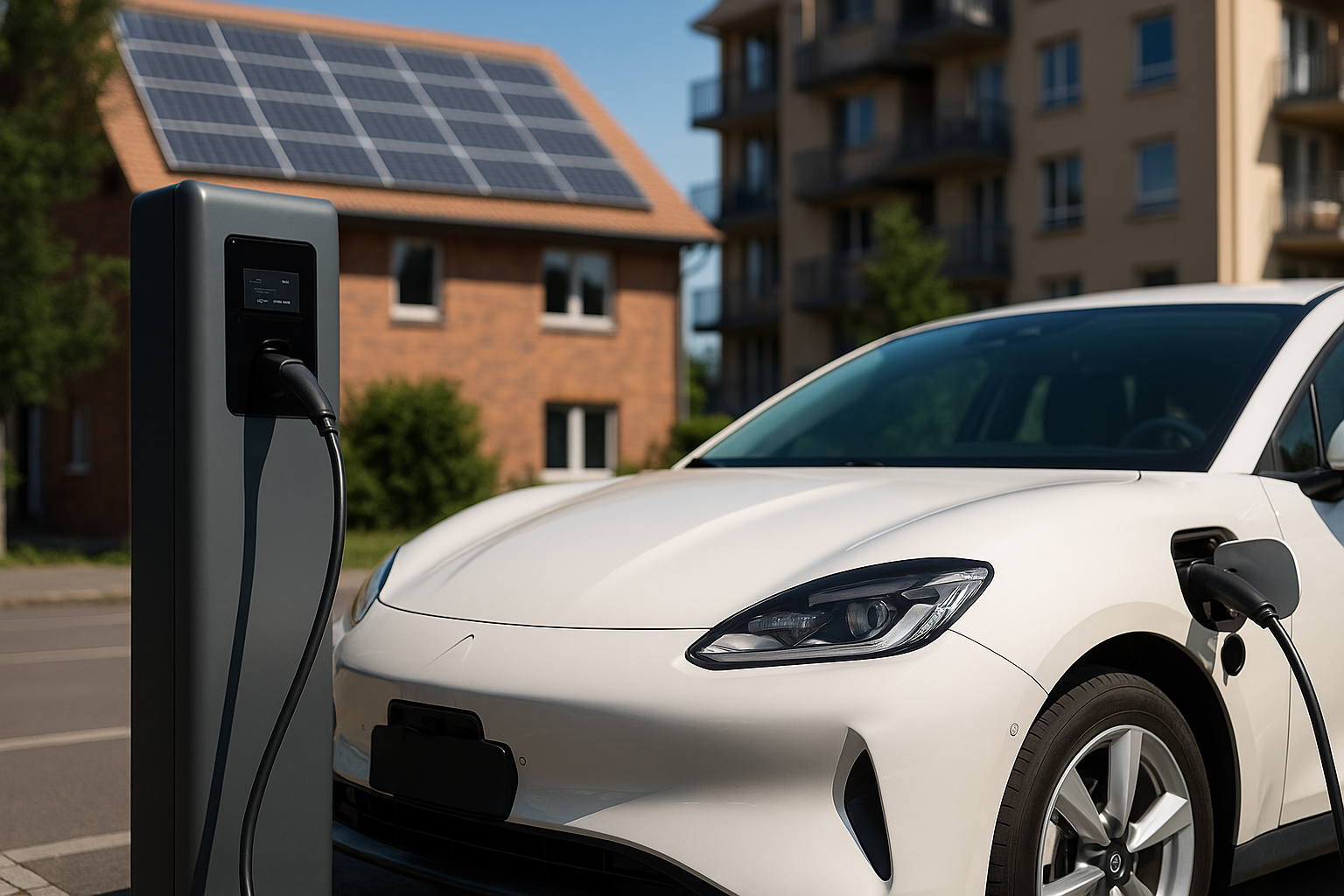AI-powered EV charging cuts peak demand and enhances voltage stability
The transition to electric mobility is reshaping urban electricity demand, especially in high-density residential complexes. Traditional grid systems are often ill-equipped to manage the synchronized charging behaviors of large EV user populations. In this context, the research introduces an advanced AI-based optimization framework combining reinforcement learning, linear programming, and real-time grid-aware scheduling to intelligently manage EV charging patterns.

Electric vehicle (EV) adoption is rising fast, and with it comes increasing pressure on urban infrastructure to meet residential charging needs. Managing this demand while integrating solar power and maintaining grid stability presents a complex challenge. To address this, a new study titled "AI-Driven Optimization Framework for Smart EV Charging Systems Integrated with Solar PV and BESS in High-Density Residential Environments," published in the World Electric Vehicle Journal (2025), presents a hybrid AI-based framework that optimizes residential EV charging systems.
The proposed AI-driven system offers a scalable blueprint for next-generation EV charging infrastructure. Its intelligent coordination of user demand, renewable generation, and energy storage positions it as a forward-compatible solution aligned with smart grid and climate goals.
How can AI manage energy demands in urban EV charging networks?
The transition to electric mobility is reshaping urban electricity demand, especially in high-density residential complexes. Traditional grid systems are often ill-equipped to manage the synchronized charging behaviors of large EV user populations. In this context, the research introduces an advanced AI-based optimization framework combining reinforcement learning, linear programming, and real-time grid-aware scheduling to intelligently manage EV charging patterns.
The proposed system architecture incorporates 50 smart wall-mounted EV chargers, a 120 kWp rooftop solar photovoltaic (PV) installation, and a 60 kWh lithium-ion battery energy storage system (BESS), simulating the energy dynamics of 800 residential units. This setup enables a comprehensive approach to optimize power usage while balancing grid performance, energy cost, and user satisfaction.
The study’s AI model uses a non-homogeneous Poisson process to dynamically forecast charging demand, a critical innovation that helps preempt grid stress before it occurs. The optimization objective is to reduce peak load, enhance voltage stability, and maximize solar power utilization by considering a composite reward function that evaluates user convenience, energy costs, and voltage deviation.
What operational gains can intelligent systems deliver?
The simulations, conducted using MATLAB/Simulink and OpenDSS with SCADA-based performance monitoring, yield compelling results that affirm the framework's effectiveness. Key technical benefits include a 31.5% reduction in peak transformer load, a significant improvement in grid performance that directly mitigates the risk of infrastructure overload during high-demand periods.
Voltage deviation, a persistent concern in power quality and safety, is reduced from ±5.8% to ±2.3%, enhancing both reliability and system longevity. This optimization contributes to better voltage regulation without the need for costly hardware upgrades. Furthermore, solar PV utilization climbs from 48% to 66%, marking a meaningful stride in promoting renewable energy adoption in urban settings.
The model's ability to learn and adapt in real time ensures that charging schedules respond dynamically to shifting demand and generation profiles. By prioritizing user satisfaction alongside grid parameters, the framework strikes a pragmatic balance between consumer needs and infrastructure constraints. This synergy enables utilities to flatten load curves, avoid costly peak-hour tariffs, and better align electricity consumption with solar energy production.
Is the system scalable and ready for real-world deployment?
Scalability and cost-efficiency are essential criteria for any urban energy solution. The proposed framework is designed with modularity and real-world feasibility in mind. Through the use of smart chargers and interoperable control systems, the architecture is adaptable to various urban layouts and utility constraints.
The researchers underscore the framework's resilience in handling uncertainties in user behavior, energy generation, and storage capacity. Its real-time responsiveness is especially critical for urban deployments, where load variability and environmental fluctuations are frequent. The combination of reinforcement learning and linear programming ensures computational tractability while maintaining operational performance.
Notably, the framework supports integration with supervisory control and data acquisition (SCADA) systems, providing utilities with full observability and control over network operations. This facilitates data-driven decision-making and enhances transparency in energy management.
Overall, the proposed framework addresses key technical, operational, and environmental challenges of residential charging networks.
- FIRST PUBLISHED IN:
- Devdiscourse










